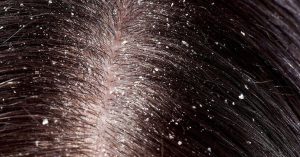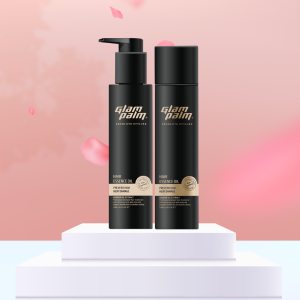
5 Easy Ways to Treat Flaky Scalp
A flaky scalp can make you feel like a snake shedding off its scales. It can be embarrassing when the

Sun exposure is a leading cause of premature skin ageing, also known as photoaging.
The harmful UV rays from the sun can damage the skin’s structure, leading to wrinkles, fine lines, hyperpigmentation, and loss of elasticity.
While sun exposure is inevitable, there are effective ways to protect your skin and minimise its ageing effects.
Here are 7 dermatologist-recommended tips to help you maintain youthful, healthy skin despite the sun’s rays.
Applying sunscreen daily is the most effective way to protect your skin from harmful UV rays.
Choose a broad-spectrum sunscreen with an SPF of at least 30 to shield your skin from both UVA and UVB rays.
Apply generously to all exposed skin, and reapply every two hours or immediately after swimming or sweating.
Don’t forget often-missed areas like the ears, neck, and hands.
Make sunscreen a part of your daily skincare routine, even on cloudy days or during winter.
Look for sunscreens with added antioxidants for extra skin protection.
Regular use of sunscreen can prevent sunburn, reduce the risk of skin cancer, and keep your skin looking youthful longer.
Wearing protective clothing is another essential step in guarding against sun damage.
Choose long-sleeved shirts, long pants, and wide-brimmed hats to cover as much skin as possible.
Dark-coloured, tightly woven fabrics offer better protection than light-coloured, loose-weave materials.
Consider clothing with a UPF (Ultraviolet Protection Factor) rating for added security.
Sunglasses with UV protection can also help prevent damage to the delicate skin around your eyes.
Remember that wet or stretched clothing loses some of its protective ability so change out of wet clothes promptly.
Combining protective clothing with sunscreen enhances overall skin protection.
Seeking shade, especially during peak sun hours from 10 a.m. to 4 p.m., can reduce your skin’s UV exposure.
Plan outdoor activities for the early morning or late afternoon when the sun’s rays are less intense.
Use umbrellas, trees, or other shelters to stay out of direct sunlight.
Even when you’re in the shade, wear protective clothing and sunscreen for extra safety.
Reflective surfaces like water, sand, and concrete can still expose you to UV rays, so remain cautious.
Portable sunshades and canopies can provide additional protection when shade is scarce.
By avoiding the sun at its strongest, you minimise the risk of skin damage.
Use antioxidant-rich skincare products and make it part of your daily routine to combat free radicals caused by UV exposure.
Antioxidants like vitamins C and E, ferulic acid, and niacinamide can neutralise these harmful molecules and repair skin damage.
Look for serums, moisturisers, and sunscreens that contain these powerful ingredients.
Applying antioxidants in the morning can enhance your skin’s defence against the day’s environmental stressors.
Layer these products under your sunscreen for optimal protection.
Regular use can improve skin texture, reduce inflammation, and promote a brighter complexion.
Antioxidants are an essential addition to a comprehensive sun protection strategy.
Staying hydrated is crucial for maintaining skin health and resilience against sun damage.
Drink plenty of water throughout the day to keep your skin hydrated from the inside out.
Hydrated skin is more resilient and better able to repair itself.
Include water-rich foods like fruits and vegetables in your diet to boost hydration.
Use hydrating skincare products such as hyaluronic acid serums and moisturisers to lock in moisture.
Avoid excessive caffeine and alcohol, which can dehydrate your skin.
Hydration helps maintain skin elasticity, reduces the appearance of fine lines, and supports overall skin health.
Avoiding tanning beds is essential for preventing skin ageing and reducing the risk of skin cancer.
Tanning beds emit UVA and UVB rays that can cause significant skin damage, similar to sun exposure.
The artificial UV light accelerates the ageing process, leading to wrinkles, age spots, and a leathery texture.
If you desire a tanned look, opt for self-tanning products or spray tans, which are safe alternatives.
Educate yourself on the risks associated with tanning beds and choose sunless tanning methods instead.
Protecting your skin from artificial UV radiation is as important as shielding it from natural sunlight.
Your skin will thank you for it in the long run.
Regular skin check-ups with a dermatologist are vital for early detection and prevention of skin problems caused by sun exposure.
Schedule annual skin exams to monitor for any changes or abnormalities.
Early detection of skin cancer significantly improves treatment outcomes.
During your check-up, discuss your skincare routine and any concerns about sun damage with your dermatologist.
They can recommend personalised strategies to protect your skin and address any existing damage.
Stay vigilant about changes in your skin between visits, and seek professional advice if you notice anything unusual.
Regular check-ups ensure your skin stays healthy and youthful.
Preventing skin ageing from sun exposure requires consistent and proactive care.
By adding these dermatologist-recommended tips into your daily routine, you can protect your skin from harmful UV rays and maintain its youthful appearance.
Your skin is your largest organ, and taking care of it today will pay off with healthier, more radiant skin in the future.
Stay sun-safe and enjoy the benefits of beautiful, well-protected skin.
By following these expert tips, you can enjoy the sun while keeping your skin healthy and youthful.

A lightweight serum with a unique formula rich in nutrients found in the seeds of the fruit that blooms o...

A flaky scalp can make you feel like a snake shedding off its scales. It can be embarrassing when the

Have you ever been jealous of people with smooth, flawless hair? You can’t help but think. . . “I wish

Taking care of our hair might seem simple and easy. But even what seems like harmless actions can include hair
glampalm.com.sg © 2024. All Rights Reserved.
Sign up to our newsletter below to get your $40 coupon code immediately before it is fully redeemed.